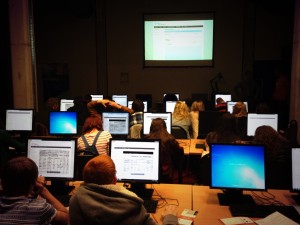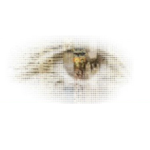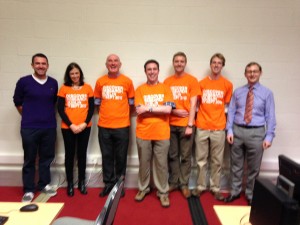Following from their success at the 2013 Discover Research Dublin night, the team behind the ‘CULTURA’ project (CULTivating Understanding and Research through Adaptivity) will once again be throwing open their doors to the public allowing users to ‘personalise’ their experience of Irish history on 26th September 2014.
The CULTURA Virtual Research Environment (VRE) allows personalisation in a multitude of ways, including a recommendation of articles based on your current and previous user history. This is not dissimilar to what you might already find on Google, often tailoring your searches based on previous searches.
However, “the user is the most intelligent element in the system”, explains CULTURA project coordinator, Owen Conlan. “The CULTURA VRE allows the user to see this user-history (what CULTURA calls the ‘user-model’), and make changes to this by either ‘pruning’ out the items and articles you weren’t really interested in, or enhancing the importance of the ones you were. This will allow the users access to controls that will put them in the driving seat”.
 Discover Research Dublin at Trinity College Dublin is part of a European-wide EU Researchers’ Night, where members of the general public, young and old, are invited to go into academic institutions across Europe to see just what researchers do. Those who come along on Friday 26th September will be able use CULTURA to search through hundreds of letters, census records, photos and depositions from around Enniscorthy in Wexford during and just after the 1916 Rising. Through a collaboration between TCD, the Military Archives and the National Archives, this vitally important and evocative part of Irish history will be available to explore and experience, and over time the team hope to expand this beyond Wexford to cover the whole island, providing an in-depth view of Ireland during one of its most turbulent eras.
Discover Research Dublin at Trinity College Dublin is part of a European-wide EU Researchers’ Night, where members of the general public, young and old, are invited to go into academic institutions across Europe to see just what researchers do. Those who come along on Friday 26th September will be able use CULTURA to search through hundreds of letters, census records, photos and depositions from around Enniscorthy in Wexford during and just after the 1916 Rising. Through a collaboration between TCD, the Military Archives and the National Archives, this vitally important and evocative part of Irish history will be available to explore and experience, and over time the team hope to expand this beyond Wexford to cover the whole island, providing an in-depth view of Ireland during one of its most turbulent eras.
During the 2013 EU-Researchers’ Night, TCD and the Knowledge and Data Engineering Group co-organised three sessions with secondary school teachers and students (aged between 15 and 17), from a range of Dublin schools. Students completed a session on the VRE using the 1916 witness statements from Enniscorthy and narratives produced by experts in modern Irish history, followed by a period of semi-guided exploration of depositions taken in 1641 during the Rebellion against Cromwell’s armies. This event was a resounding success, with teachers and students alike responding with enthusiasm to the CULTURA Environment and the content presented to them.
“This kind of multi-disciplinary research is of huge importance to Ireland, and a personalised research space such as ours not only has commercial value, but simultaneously provides a new and deeper insight into the lives of those in Ireland around 100 years ago,” reflects Owen. “As we consider the events of the last century and their impact on today’s Ireland, we hope to further show the relevance of digital tools for historical and humanities research”.

